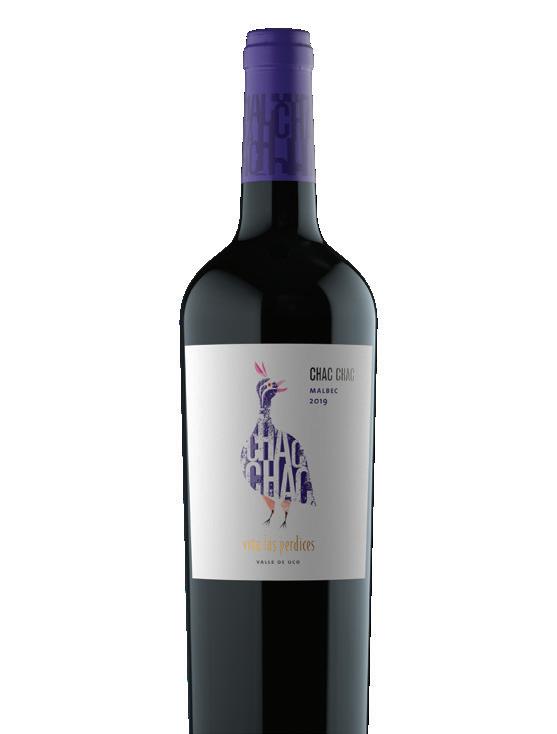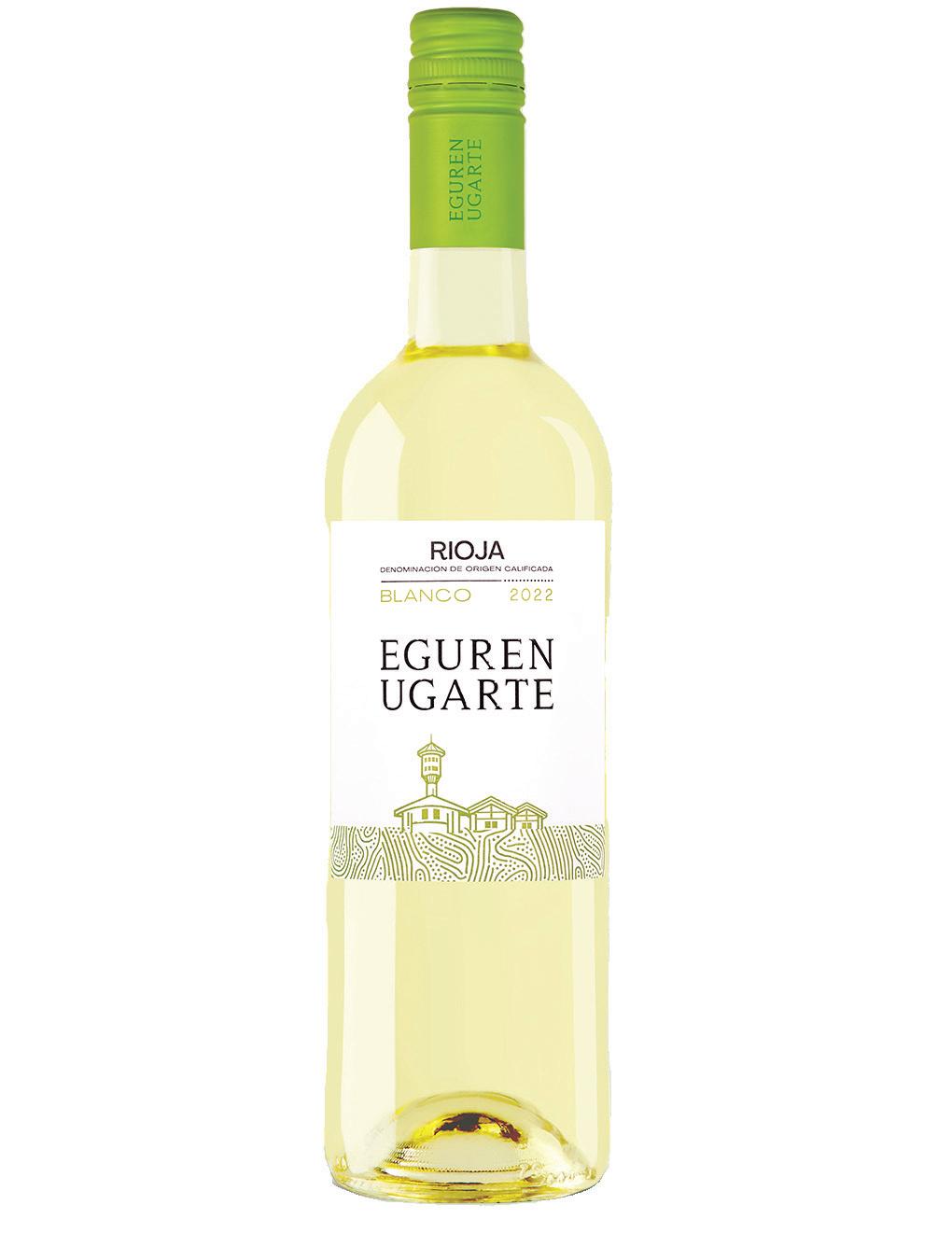
5 minute read
Discovering vegan and vegetarian wines

I’VE READ THAT THE INEXORABLE RISE in the popularity of veganism has slowed a little of late. It’s not that people have given up on it, but there is often something of a premium to be paid for vegan products and times are hard. Cards on the table, I am neither vegan nor vegetarian but that’s not to say that I don’t enjoy the occasional dish from time to time. But when it comes to wine, whether a bottle is vegan or vegetarian is not something that enters into my thinking. From a commercial perspective, however, we cannot ignore it and it’s perhaps surprising that more wineries have not looked to promote their vegan/vegetarian credentials on their bottles, but there are clues if you know what to look for!
Advertisement
You could be forgiven for wondering why all wines aren’t vegan, let alone vegetarian, after all, isn’t it just made from fermented grapes?
Well, there is actually a process often used in winemaking called ‘fining’; this is a technique which involves passing an agent through the wine to clarify it. If you have seen freshly fermented wine, you will know that it is generally cloudy. This is because of the proteins suspended within. The fining agent attracts these proteins, forming miniscule clumps – very small, but heavy enough for them to fall to the bottom of the tank so that the clarified wine above can be racked off into a different tank. This is often a precursor to filtration depending on how clear and bright a wine the winemaker is looking to achieve.
It is the nature of these fining agents that determines whether a wine is vegan or vegetarian. Historically, they were universally derived from animals and many still are. Albumen (from egg whites), casein (from milk) and isinglass (derived from fish) are three of the most commonly used today. There is a clay-derived substance called bentonite that is increasingly used these days which naturally ticks the box for vegan/vegetarian drinkers – begging the question as to why all wines aren’t using it? Basically, it’s very easy to use too much which isn’t really an issue with traditional agents, but excess bentonite can destabilise the balance of tartaric acid, causing the formation of crystals after the wine has been bottled.
Some, but in truth not many, wines are labelled as vegan – my suspicion is that as with organic production, many winemakers like to practice it when they can, but don’t want to commit to certification for

Las Perdices ‘Chac Chac’ Mendoza Malbec 2021 (vegetarian) those occasions (vintages) when mother nature throws a curveball. However, there are other things that you can look for; it is increasingly popular to bottle wines without fining or filtration (both processes improve clarity, but inevitably remove a little character) and whilst they don’t all declare this on the (back) label, many do. This seems to be more popular with reds than whites, with some reds so opaque in nature anyway, that you might not even notice. We do seem to be increasingly accepting of a little haziness – as seen in the inexorable rise in popularity of craft beer, so I anticipate more whites in this vein too.

Here are four vegan/vegetarian recommendations that give a reasonable overview of the quality that is on offer right now…
Viña Las Perdices (the partridges) story started with Juan Carlos Muñoz who emigrated from Andalucía, Spain in the early 1950s to grow vines. It was his two sons Juan and Nicolás who in 2004, decided to take the next step and build their own winery in the highly regarded Agrelo district within Mendoza, Argentina’s pre-eminent wine-growing region. Their estate has grown over the years and now stands at 93 hectares planted with 17 different grape varieties with Malbec, inevitably, being the most significant! This fine example is a fragrant red with aromas of blueberry and damson with hints of menthol and herb. The palate is full and rounded with juicy, spicy dark fruit and shows finegrained tannins. Chac Chac is the mating call of the resident partridges! £10.50
Lou Miranda Estate ‘Leone’ Barossa Valley Shiraz 2018 (vegan)

Francesco ‘Pop’ Miranda emigrated to Griffith, NSW in 1938 and then followed his dream of owning his own winery, moving to Roland Flat near Lyndoch in South Australia’s Barossa Valley. His son Lou, and his wife Val, took over and built on this and today the winery is run by their three daughters, Lisa (GM), Angela (winemaker) and Victoria (marketing). Their 100 acres of vineyard spread across four separate blocks would be sizeable by European standards but in Australia they are very much a ‘boutique’ winery! This Shiraz was blended predominantly from two vineyard sites and was harvested relatively early. Fermentation in stainless steel tanks took just over a fortnight and maturation in American oak for two years allowed the tannins to soften and mature. This is drinking very well already but could be comfortably kept for another 5-10 years. It has a deep purple-ruby appearance, and the nose is classic Barossa Shiraz with abundant plum and bramble fruit with touches of clove and spice with underlying chocolate and coffee notes. The palate is rich and generous with plum, liquorice, chocolate and spice characteristics.
A fifth generation family owned and run Bodega established in 1870 by Anastasio Eguren in the historic town of Laguardia. They moved to their present location just outside the town in 1989 and it is as spectacular a winery as you will find anywhere – surrounded by 130 hectares of vineyards against the dramatic backdrop of the Sierra Cantabria. It still comes as a surprise to many that Rioja can be white, or indeed Rosé, such is the dominance of red wine in this most famous of Spanish wine regions. However, Ugarte are somewhat specialists, producing no less than six different Rioja Blancos, with this delightfully summery example being the only one not to spend time in oak. If I’m honest, unoaked white Rioja is all too often a bit meh, but this is the real deal – a mix of five varieties – three traditional and two ‘international’ – taking advantage of the recent expansion of the list of permitted varieties. Greater than the sum of its parts? Hell yeah! £9.50

Domaine Ferrandière IGP Pays d’Oc Chardonnay 2022 (vegan)
Located in between Corbières and Minervois, this estate lies in the drained Etang de Marseillette (lagoon of Marseillette) where the soil is enriched by the underlying layers of sediments and salt. Its saline soils are resistant to phylloxera and they can therefore be planted with ungrafted varieties. The methods of cultivation are specific to this place, notably the flooding of the vines in winter and spring. Its exceptional microclimate, with hot days and cool nights in summer, despite having an altitude of only 20 metres, make it possible to cultivate no fewer than 18 grape varieties from the south of France as well as others from further afield. The estate is farmed sustainably and is certified by HVE3, producing wines classified as AOP Languedoc and IGP Pays d’Oc. This delicious Chardonnay is clean, fresh and full of vitality. No oak allows plenty of citrus and green apple fruit to shine through in this beautifully ‘food-friendly’ white. £10.25














